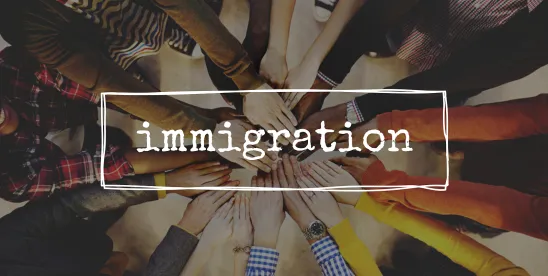It is no exaggeration to say that the 2024 presidential election may have dramatic consequences on U.S. immigration.
The two leading candidates, President Joe Biden and former President Donald Trump, differ not only in their rhetoric about immigration but also in the policies they pursued in their respective terms in office. While unauthorized immigration and the border dominate the headlines, business immigration would bear the impact of a change in administrations as well.
So, what do employers think?
BAL recently surveyed business leaders about their immigration programs, how they plan to support their workforce and how they are preparing for the election. In all, we received 111 responses. Answers varied, but a few trends emerged.
- Foreign talent needs: Respondents have found it easier to meet foreign talent needs in the last four years and identified the changes they would like to see the Biden administration finalize before the end of the President’s term.
- Commitment to workforce: Employers remain committed to supporting their foreign national employees, even amid political uncertainty.
- Preparing for possible change: Companies grasp the importance of the election, but many of them say they have not begun preparing for — or communicating to stakeholders about — potential changes.
Meeting foreign talent needs
Nearly 6 in 10 respondents (59%) said their organization found it “somewhat” or “much” easier to meet foreign talent needs in the last four years. Another 23% said there was not much change for their organization, while 18% said it was “much harder” or “somewhat harder.”
We also asked about the potential changes the administration should prioritize for the remainder of Biden’s first term, allowing respondents to pick more than one answer.
- 70% said finalizing H-1B “modernization” proposals.
- 63% said developing a permanent, expanded domestic visa renewal program.
- 55% said making improvements to adjustment of status.
- 25% selected two of these three priorities, while 32% listed all three.
Other priorities for employers included reducing Department of Labor wait times, stabilizing Deferred Action for Childhood Arrivals (DACA) and securing the U.S.-Mexico border.
Support for foreign national employees
While the election has the potential to disrupt immigration policies and procedures, employers remain committed to their foreign national employees.
Two-thirds of respondents (67%) said they “are doing as much as (they) can” with existing resources to protect the work status of foreign national employees prior to the election. An additional 15% said they are expanding resources.
Preparation and communication
Respondents were split regarding when they will start planning for possible changes, with roughly half saying they have already begun doing so or will this summer and the other half saying they will wait until the fall or after the election.
A plurality of survey respondents said they had not yet begun communicating with their organization’s leadership or foreign national employees but that they plan to do so.
It is understandable that many employers said they don’t know where to start when communicating about the election. The uncertainty of the outcome makes preparation and communication difficult.
There are steps employers can take now, however, including encouraging foreign national employees to move up their timelines for travel and visa renewals; prioritizing certain petition filings to take advantage of current policies; and reviewing employee populations and company policies to help identify the likely effects of a potential change in administration.
BAL is able to assist in these endeavors and will continue providing additional information and resources as we move through election season.
About the survey
BAL’s election survey was open to the public May 14 through June 5. There was a total of 111 survey respondents, with immigration program sizes ranging from fewer than 10 petitions to more than 500 petitions filed per year. Respondents included a mix of in-house attorneys, immigration program managers and human resources and global mobility professionals, among others.
Respondent industries
Respondents represented more than 20 industries, including:
- Arts, media and entertainment
- Education
- Energy, environment and utilities
- Engineering and architecture
- Finance and insurance
- Gaming
- Healthcare
- Hospitality, tourism and recreation
- Information and communication technology
- Manufacturing and product development
- Pharmaceutical, life sciences and biotech
- Professional services
- Religious
- Retail
- Semiconductors
- Transportation
Respondent program size
Respondents represent businesses with small, mid-size and large immigration programs.




 />i
/>i

